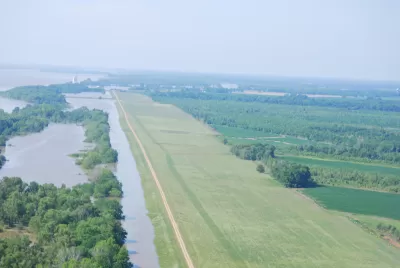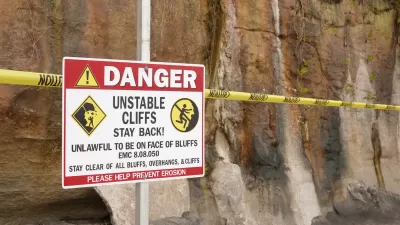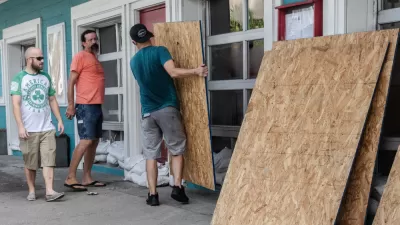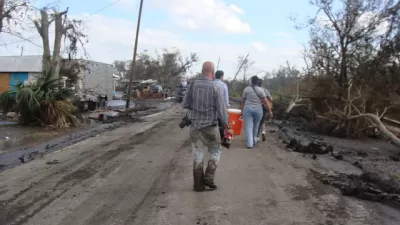According to a new study, the state's coastal lands are sinking at a quicker rate than previously estimated.

New findings suggest that Louisiana's coasts are subsiding at an average rate of nine millimeters a year. That might not sound like much, but compounded with rising seas, some are calling the problem a "worst case scenario."
Chelsea Harvey writes: "Subsidence is believed to be a natural process, which has likely been occurring in the region for thousands of years. But scientists believe the process has been enhanced by a variety of human activities in the Mississippi Delta over the past century, including oil and gas extraction, as well as the building of levees and other actions affecting the flow of the Mississippi River [...]"
One observer notes that "the paper's greater value is the spatial variation it reveals, with different subsidence rates at different locations. This suggests that different parts of the shoreline may need more attention than others."
FULL STORY: Scientists say the rapid sinking of Louisiana’s coast already counts as a ‘worst case scenario’

Planetizen Federal Action Tracker
A weekly monitor of how Trump’s orders and actions are impacting planners and planning in America.

Maui's Vacation Rental Debate Turns Ugly
Verbal attacks, misinformation campaigns and fistfights plague a high-stakes debate to convert thousands of vacation rentals into long-term housing.

Restaurant Patios Were a Pandemic Win — Why Were They so Hard to Keep?
Social distancing requirements and changes in travel patterns prompted cities to pilot new uses for street and sidewalk space. Then it got complicated.

In California Battle of Housing vs. Environment, Housing Just Won
A new state law significantly limits the power of CEQA, an environmental review law that served as a powerful tool for blocking new development.

Boulder Eliminates Parking Minimums Citywide
Officials estimate the cost of building a single underground parking space at up to $100,000.

Orange County, Florida Adopts Largest US “Sprawl Repair” Code
The ‘Orange Code’ seeks to rectify decades of sprawl-inducing, car-oriented development.
Urban Design for Planners 1: Software Tools
This six-course series explores essential urban design concepts using open source software and equips planners with the tools they need to participate fully in the urban design process.
Planning for Universal Design
Learn the tools for implementing Universal Design in planning regulations.
Heyer Gruel & Associates PA
JM Goldson LLC
Custer County Colorado
City of Camden Redevelopment Agency
City of Astoria
Transportation Research & Education Center (TREC) at Portland State University
Jefferson Parish Government
Camden Redevelopment Agency
City of Claremont





























